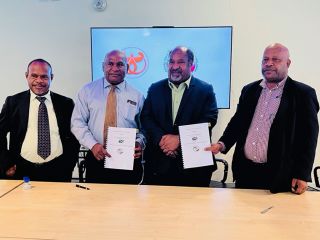Call to speak to our team
Contact our team via email
Mon - Fri: 8:00 - 4:30
We maintain normal hours
Call to speak to our team
Contact our team via email
Mon - Fri: 8:00 - 4:30
We maintain normal hours
The specific objective of government engagement is to promote the integration of financial inclusion in the planning and implementation processes of the national and provincial governments. Government engagement to support financial inclusion activities gained momentum by signing memorandum of understandings with Provincial Governments. Memorandum of understandings were signed with the Provincial Governments of West New Britain, East New Britain, Milne Bay and New Ireland. The engagement at the provincial level will be spearheaded and overseen by Financial Inclusion Steering Committee constituted (FISC) at the provincial level. The committee will prioritise the financial inclusion initiatives and get the political support to implement the initiatives. CEFI will provide the required technical support to the steering committee

CEFI’s key role is to coordinate, advocate and monitor financial inclusion activities including coordinating stakeholder dialogue towards responsible financial service delivery and service quality, encourage innovation and strengthen financial sector industry development.
Head Office:
Third Floor, Credit Corporation Building, Cuthbertson Street, Port Moresby
Phone: +675 322 5300
Email: info@thecefi.org